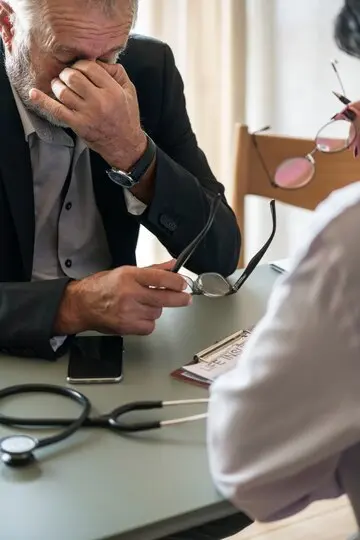The loss of a loved one due to medical negligence or malpractice is a devastating event that can leave families feeling hopeless and overwhelmed. The ramifications after wrongful death in healthcare extend far beyond the immediate grief and mourning. Not only do families face emotional anguish, but they also find themselves navigating a complex legal and financial landscape to seek justice. In this article, we’ll explore what wrongful death in healthcare means, its causes, the legal process, and the far-reaching effects it has on families.
What is Wrongful Death in Healthcare?
Wrongful death in healthcare occurs when a patient dies due to the negligence, misconduct, or inaction of a healthcare professional. Medical malpractice leading to wrongful death is one of the most difficult forms of loss, as it is often preventable. This type of death is legally recognized when a healthcare provider’s failure to meet the standard of care directly leads to the patient’s death.
There are many causes of wrongful death in healthcare, from misdiagnosis to surgical errors. In each case, the consequences of negligence are far-reaching, leaving families to pick up the pieces.
Common Causes of Wrongful Death in Healthcare
The ramifications after wrongful death in healthcare vary depending on the specific cause, but some medical mistakes are more common than others. These include:
- Misdiagnosis or Delayed Diagnosis
Misdiagnosis or delayed diagnosis can have serious consequences. Conditions such as cancer, heart disease, and stroke require immediate attention, and a failure to diagnose them in time can lead to fatal outcomes. If a healthcare provider fails to identify a serious condition or misinterprets test results, it can lead to a fatal delay in treatment. - Surgical Errors
Surgical mistakes are among the most frequent causes of wrongful death. These can include operating on the wrong body part, leaving surgical instruments inside a patient, or performing a procedure incorrectly. The ramifications after wrongful death in healthcare due to surgical errors can be immediate and catastrophic, requiring extensive legal action to hold the responsible parties accountable. - Medication Errors
Medication errors occur when a doctor, nurse, or pharmacist makes a mistake in prescribing, dispensing, or administering medication. This can involve prescribing the wrong drug, incorrect dosages, or failing to account for dangerous drug interactions. These errors can be deadly, especially when medications are not properly monitored or managed. - Birth Injuries
During labor and delivery, medical professionals must exercise great care to avoid errors that could lead to the death of the mother or baby. Negligence during childbirth can lead to complications such as improper use of delivery instruments, delayed Cesarean sections, or failure to recognize signs of distress. The ramifications after wrongful death in healthcare from birth injuries are deeply felt by the family and can be emotionally overwhelming. - Anesthesia Errors
Anesthesia is a critical part of many medical procedures, and any mistake in its administration can lead to severe consequences, including death. Anesthesia errors can include incorrect dosages, failure to monitor vital signs, or failure to account for pre-existing conditions that might complicate anesthesia.
Who Can File a Wrongful Death Claim in Healthcare?
In most cases, only certain family members have the legal right to file a wrongful death lawsuit. In Florida, under the Wrongful Death Act, the following individuals may be eligible to pursue a claim:
- The deceased’s spouse
- Children under the age of 25
- Parents of minor children
- Dependent relatives
The claim must be filed by the personal representative of the deceased’s estate, acting on behalf of the beneficiaries. It’s essential to take prompt action since Florida law imposes strict statutes of limitations.
Legal Process of Filing a Wrongful Death Lawsuit
The ramifications after wrongful death in healthcare can be far-reaching, but pursuing a wrongful death claim is a way to ensure that the negligent parties are held accountable. Here’s a general outline of the legal process:
- Consult with an Attorney
The first step is to consult with a skilled wrongful death attorney who specializes in healthcare-related cases. They can evaluate the situation and advise on the best course of action. - Gather Evidence
A wrongful death claim requires strong evidence, including medical records, autopsy reports, and testimony from medical experts. This is necessary to prove that negligence or malpractice directly caused the death. - File the Claim
After the evidence has been gathered, the attorney will file the lawsuit in court. This includes identifying the responsible parties, such as doctors, nurses, hospitals, or other healthcare providers. - Negotiation or Trial
In many cases, wrongful death cases are settled out of court. However, if a fair settlement cannot be reached, the case may go to trial, where the plaintiff (the surviving family members) will present their evidence and seek compensation.
Impact of Wrongful Death on Families
The ramifications after wrongful death in healthcare are profound. The emotional, psychological, and financial toll on families is often overwhelming.
- Emotional Impact
The grief from losing a loved one to preventable medical errors can be intense. Families often experience anger, confusion, and helplessness, especially when the loss was avoidable. Healing from this trauma can take years, and some families never fully recover from the emotional shock. - Financial Burden
Wrongful death cases can also lead to significant financial strain. Families may have to deal with funeral expenses, medical bills, and the loss of income that the deceased would have contributed. In many cases, a successful wrongful death lawsuit can help relieve these financial burdens, providing compensation for economic damages. - Legal and Practical Challenges
Navigating the legal process of a wrongful death lawsuit is not easy. The family must handle court proceedings, meet deadlines, and gather evidence, all while coping with their grief. The support of an experienced lawyer can help ease this burden and ensure the best chance for a successful outcome.
Types of Compensation in Wrongful Death Cases
Families who file a wrongful death lawsuit may be entitled to several types of compensation:
- Economic Damages
These damages cover tangible losses, such as medical bills, funeral expenses, and lost income. If the deceased was a primary breadwinner, compensation for lost wages may be significant. - Non-Economic Damages
Non-economic damages are awarded for the emotional pain and suffering experienced by the surviving family members. These can include compensation for the loss of companionship, emotional distress, and mental anguish. However, in some states like Florida, there are caps on non-economic damages. - Punitive Damages
In cases where the defendant’s conduct was particularly egregious, punitive damages may be awarded. These are meant to punish the wrongdoer and deter similar behavior in the future.
How to Find the Right Lawyer for Your Wrongful Death Case
The ramifications after wrongful death in healthcare are vast, and having the right attorney is crucial for navigating the legal complexities of a wrongful death claim. Here are a few tips for finding the right lawyer:
- Experience with Medical Malpractice
Look for a lawyer who specializes in medical malpractice and wrongful death claims. Their experience with these types of cases can significantly impact the outcome of your claim. - Track Record of Success
Choose a lawyer with a proven track record of successful wrongful death cases. Check their client reviews and any notable settlements or verdicts. - Contingency Fee Basis
Many wrongful death lawyers work on a contingency fee basis, meaning they only get paid if they win your case. This arrangement helps ease the financial strain on families during an already difficult time.
Preventing Medical Malpractice: Steps to Take
While you can never undo the ramifications after wrongful death in healthcare, there are steps you can take to minimize the risk of medical errors:
- Choose Healthcare Providers Carefully
Always seek providers with good reputations and relevant experience, particularly for high-risk procedures or treatments. - Be an Advocate for Your Health
Always ask questions about your diagnosis, treatment options, and medications. Never hesitate to seek a second opinion if something doesn’t feel right. - File Complaints if Necessary
If you believe a healthcare provider’s negligence is putting patients at risk, file a complaint with the appropriate medical boards. Holding healthcare providers accountable can help prevent further harm to others.
Conclusion
The ramifications after wrongful death in healthcare can be overwhelming and life-altering. While pursuing a wrongful death lawsuit won’t bring a loved one back, it can provide the compensation needed to alleviate some of the financial burdens and help bring closure to the family. The legal process is complex, and the emotional toll can be significant, but with the right legal support, justice can be pursued.
If you have lost a loved one due to medical negligence, it’s important to speak with an experienced wrongful death attorney to understand your rights and options.

